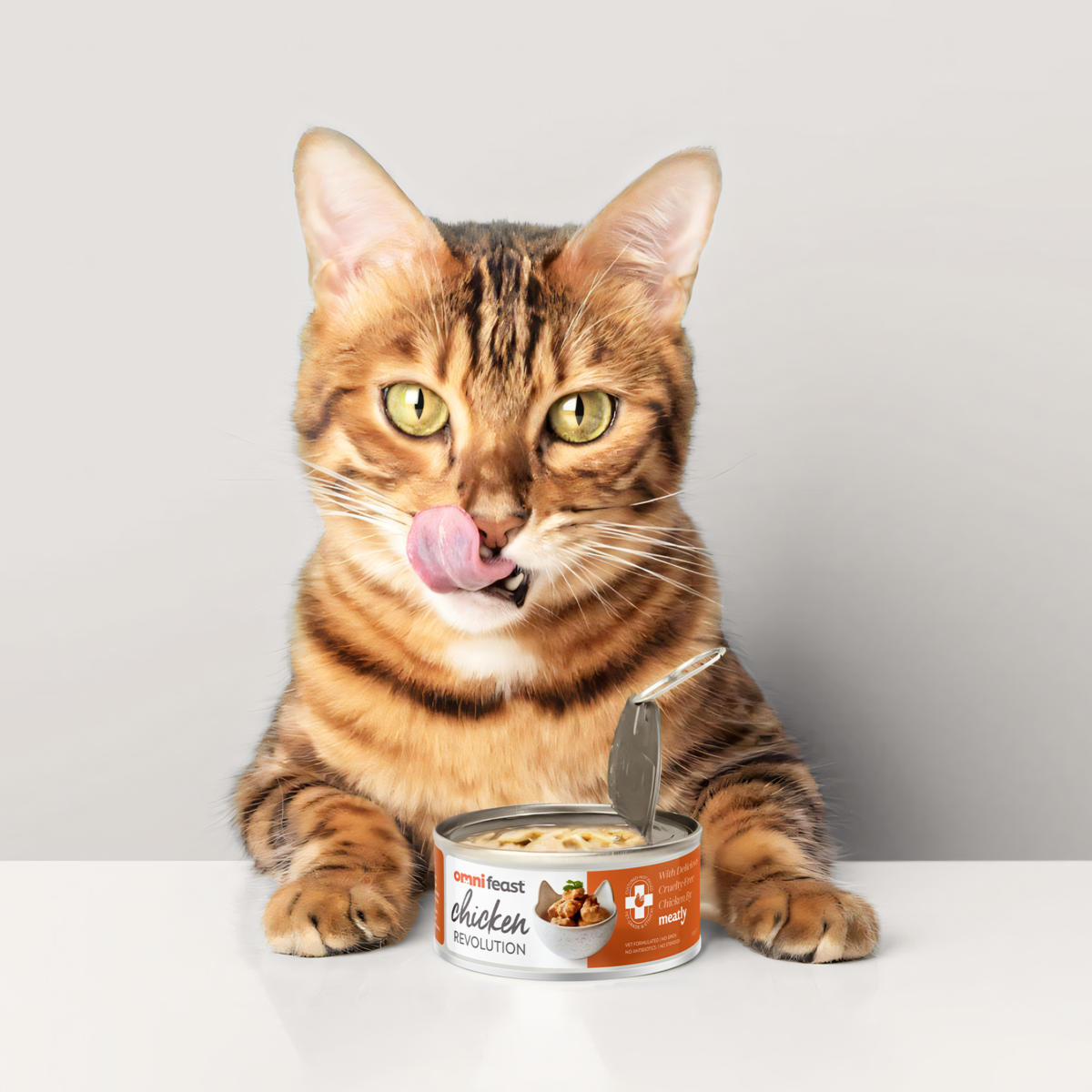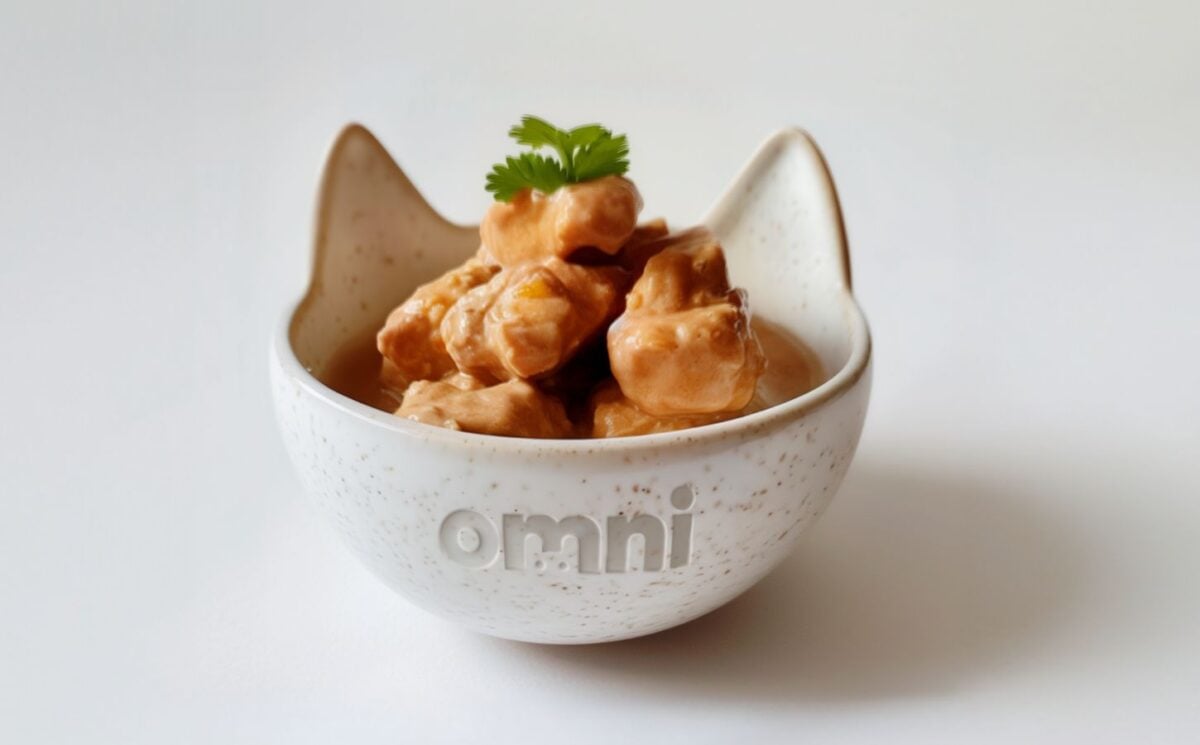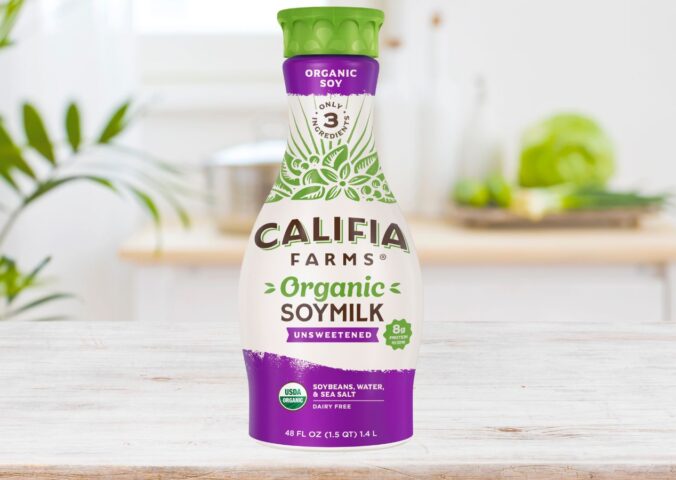What’s thought to be the world’s first cans of cat food made from cultivated meat have been made – and they could be on the market very soon.
The product is a collaboration between “pet” food specialists Omni and cultivated meat brand Meatly. This is Omni’s first venture into the cultivated space, as it previously sold purely plant-based food for cats and dogs.
The 150g tins of cultivated chicken cat food will cost £1 each. They are not available to buy yet, and still need regulatory approval from the government before they arrive in shops. According to the brand, Pets at Home looks set to be its first stockist once approval is granted, which could be in the next three months.
“It is incredibly exciting to see the first ever cans of cultivated pet food fly off the production line. This is a major milestone for cultivated meat globally and shows that we are ready to sell product,” said Owen Ensor, Co-founder and CEO of Meatly, in a statement. He added that “cultivated meat gives pet parents an easy choice – high quality, tasty, nutritious, and sustainable pet food.”
What is cultivated meat?

Cultivated meat, also known as cultured meat, lab-grown meat, or cell-based meat, is a form of meat produced by culturing animal cells in a controlled environment, without the need to raise and slaughter animals. It involves taking a small sample of animal cells and providing them with the necessary conditions to grow and multiply. These cells can differentiate into muscle and fat cells, mimicking the composition of traditional meat.
It’s important to note that cultivated meat is not vegan, however, as it is real animal meat that involves the use of an animal to some degree. The cells must usually be extracted from animals, meaning it still involves animal use in its production.
According to Meatly, the cells to make the cat food were extracted from a chicken egg. The company also did not use fetal bovine serum or animal products in its production. Fetal bovine serum, which made from the blood of cow fetuses extracted from an animal during pregnancy, has traditionally been used in the cultivated meat industry to make the product grow effectively. Many companies are moving away from it, however.
Could cultivated meat end animal farming?
While vegans wouldn’t usually eat cultivated meat, it’s still widely supported by many following the lifestyle. This is because it could provide a viable way to move the world away from traditional animal agriculture, which slaughters trillions of individuals each year. Currently the cultivated meat market is in its early stages, only available at a select few places in the US and Singapore. If this new product were to gain approval, it would be the first cultivated meat product sold in Europe, and the first cultivated pet food on the market anywhere in the world.
Demand for pet food is growing, and Meatly says that 22 percent of the meat consumed in the UK is eaten by companion animals. Cultivated food could help many households reduce their contribution to the hugely unsustainable and unethical meat industry.
There are also a wide range of plant-based pet food products already available, and studies have shown that well-planned vegan diets are both safe and healthy for cats and dogs.






